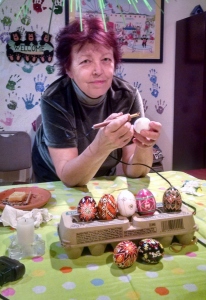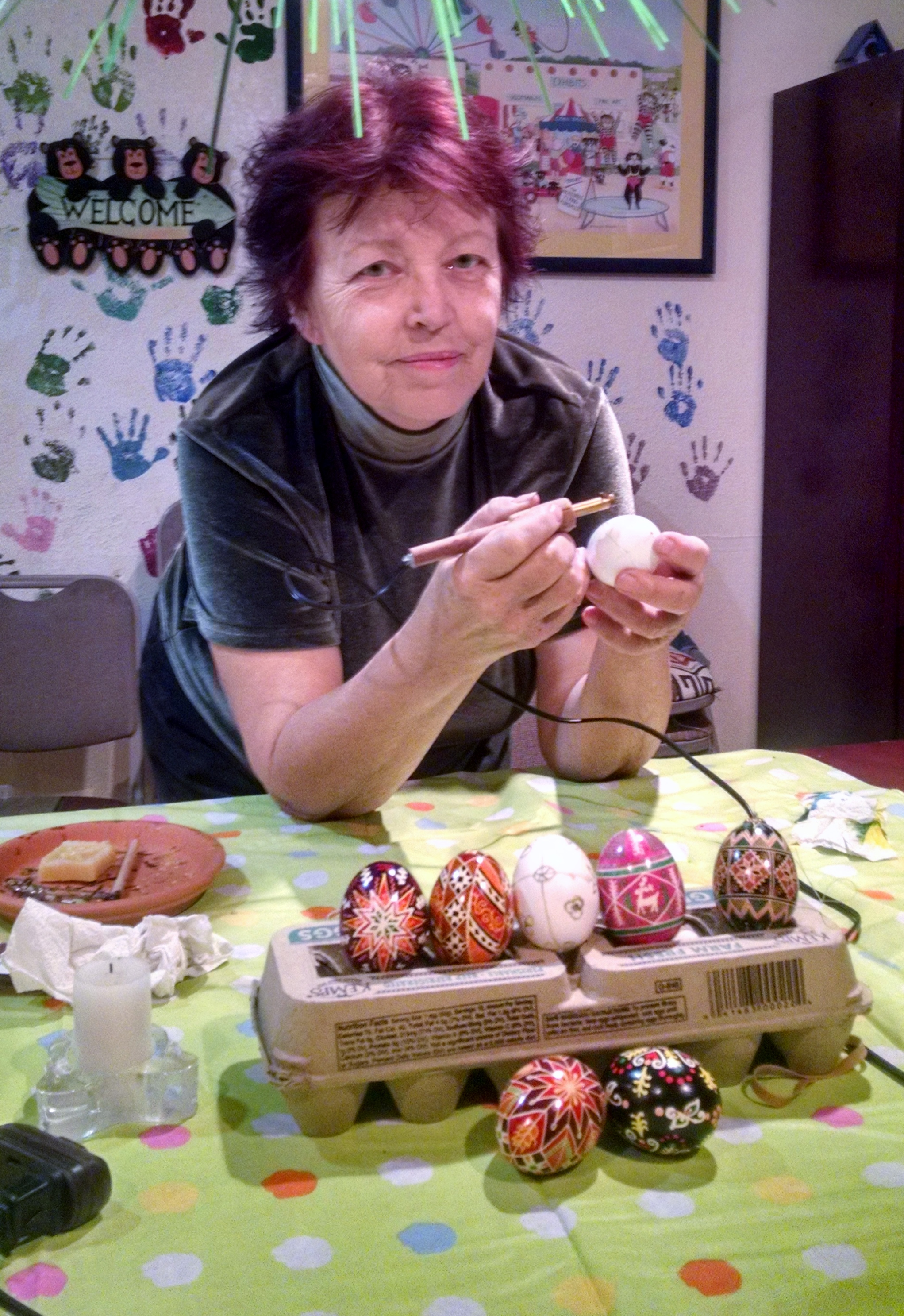In the Ukraine, there’s an ancient tradition which turns eggs into intricate works of art.
We’re not talking about Easter eggs, although they could certainly be used as such. The tradition in Ukraine is really meant as a way to pass the long winter months in the central European nation.
“Winters were very hard in the Ukraine, so women would do this as a social activity while there was a blizzard outside,” said Helene Kobelnyk, who creates these beautiful eggs. “They were gifts for weddings, christenings, house warming, anything you could think of.”
Kobelnyk brought her expertise in this art form to the NEST for the Easter holiday, teaching staff and residents how to make these intricately designed eggs.

They served both as reminders of the Easter season and as therapy for those that have survived horrific ordeals in abusive homes.
“When I do workshops like this, it’s a form of meditation,” Kobelnyk said. “You don’t have time to focus on your problems. These eggs smash easily, so you can’t hold them and be angry.”
Kobelnyk takes raw eggs and draws a design on the plain egg with beeswax. That egg is then dipped in dye. Once it dries, another layer of beeswax is applied with a more intricate design, and the dying continues in a different color.
This goes on for several layers. Everywhere the beeswax is applied, the dye does not color.
At the end of all this application, a candle is used to melt off the beeswax, and the final pattern emerges.
“It reveals itself, like a butterfly,” Kobelnyk said.
Even that process is fraught with anxiety, as these are raw eggs, and the heat from the candle can cause the yolk inside to expand and crack the shell.
It’s a process that demands patience, and usually serves as a calming influence.
“The women in that shelter are worried all the time,” Kobelnyk said. “Doing something that requires this much focus is therapeutic. They also learn how to put things behind them if an egg is ruined.”
“There’s an Ukrainian saying that states as long as there are people doing this kind of work, there won’t be evil in the world,” she added.
If only that were true, but Kobelnyk is doing her best to make the world a better place, a little bit at a time.
Kobelnyk is also the President of a recently-formed nonprofit organization called Extraordinary Dogs, in which she rescues animals from certain death in shelters and gives them the training they need to live in a loving forever home. For further information about the group’s work or to donate, she can be reached at ohk@valornet.com or (575) 354-2599.
“The eggs are revealed like butterflies, and it’s the same with these dogs, Kobelnyk said. “It’s the same with people living in the NEST. There are many parallels. If these dogs can survive what they have gone through, the women and children helped by the NEST can, too.”


